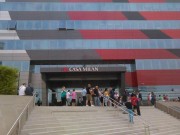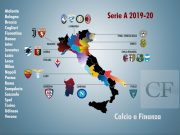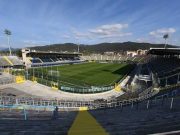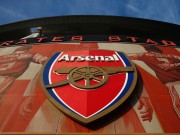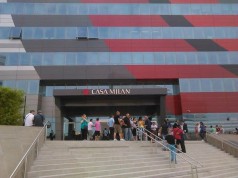Juventus’ financial statement 2015/16 closed with a profit of €4.1 million and an increase of €1.8 million compared to the €2.3 mln of the previous year. This variation, as stated by the club, was mainly derived from an increase in revenue from the registration rights of the players (€22.9 million) and the general increase in recurring revenues (€16.8 million). In reference to those revenues, in the statement it is highlighted that €13.5 million came from the sale of products and licenses, in addition to net non-recurring revenues for a total of €8.9 million.
The increase in revenue totals €387.9 million. This growth has been partially offset by the increase in players’ wages (€18.9 mln) and the general staff (€4.2 mln). In addition, Juventus FC was also able to offset the increase in costs for external services (€5.6 mln), the higher amortization on players’ registration rights (€9.2 mln), the purchase of products for sale (€4.3 million), the higher expenses from player’s registration obligations (€3.9 mln) as well as other net negative variations for total of €0.7 million. The above numbers include the higher provisions (€-1.5 mln) and the group’s share of associates and joint ventures (€-0.7 mln), partially offset by lower net financial expenses (€+0.5 mln) and lower taxes for the financial year (€+1 mln).

Juventus’ financial statement 2015/16 – Equity and debts
The resulting shareholders’ equity registered on June 30 2016 amounted to €53.4 million. Compared to the balance of €44.6 million on June 30 2015 there is a substantial increase due to the effect of the profit for the year (€+4.1 mln), changes in financial assets fair value reserve (€+4.4 mln) and also due to the cash flow hedge reserve (€+0.2 mln) and actuarial gains/losses reserve (€0.1 mln).
Juventus’ financial statement 2015/16, closed on June 30 2016, highlights €199.4 million as net financial debt and an increase of €10.5 million compared to €188.9 million registered on June 30 2015. These numbers are due to the transfer campaign outlays (€-40.2 mln net), the investments in other fixed assets (€-10.4 mln net), the investments in shareholdings (€-0.3 mln), and cash flow from other financial activities (€-5.2 mln).
Those negative variations were partially offset by the positive flows of the operative management (€+43 million) and by the net reimbursements relative to the so called “Continassa project” (€+2.6 million). As showed in Juventus’ financial statement, the club has at its disposal credit lines for a total amount of €414.5 million broken down as follows:
- €270.3 million revocable;
- €69.5 million guarantees issued in favor of third parties;
- €39.3 million for loans;
- €136.4 million for advances on contracts and trade receivables.
The 2016/2017 Season Ticket Campaign closed with a total subscription of 29,300, which are the available season passes at the Juventus stadium. The net revenue totals €24.1 million (28,000 passes and € 21.6 million in the previous season) and they include the Premium Seats and additional services.
Juventus’ Financial Statement 2015/16 – the outlook for the current season
Players signings done during the first phase of the transfer market campaign 2016-17, that took place from July 1 2016 to August 31 2016, led to a total investment of €121.9 million. This amount is derived from acquisitions and relative increments (€156,2 million) disposals (€34.3 million) referred to the net book value of disposed rights. The net capital gains generated totals €115,6 million. In addition, the total net financial commitment, including auxiliary expenses, financial income, and expenses in deferred receipts and payments totals €45.4 million.
Juventus FC’s goal is to consolidate the equilibrium of operating profit achieved in the past two years although an increase in costs related to the recent transfer market campaign (2016-17) is forecasted. According to the foreseen data, the Juventus financial statement 2016-17 will bring a positive economic outcome.



